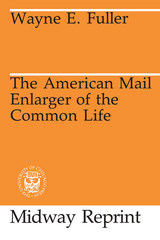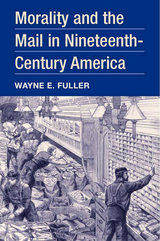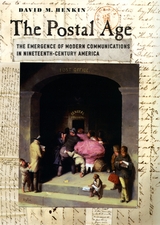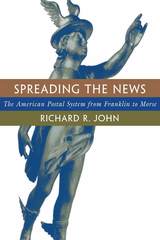

The potential for creating and using biological weapons to wreak havoc is an urgent concern not just in America, but worldwide. In fact, many security experts believe that the next act of widespread terrorism will likely come from a weapon of biochemical means.
In Anthrax: Bioterror as Fact and Fantasy, Philipp Sarasin explores the real threats of biological weapons--in contrast to the idea of biological substances as nebulous agents of terror--by analyzing the famous anthrax scares that occurred in the United States in 2001. Basing his analysis on government documents and media coverage between the events of September 11, 2001, and the beginning of the Iraq War in March 2003, he shows that the anthrax letters became the necessary fantasy-link between the 9/11 attacks and Saddam Hussein's "weapons of mass destruction." While many bioterrorism experts agree that it would be difficult to use anthrax effectively as a weapon in a large-scale attack, the anthrax scares that occurred in the wake of the September 11 terrorist attacks amplified the American public's fear and uncertainty about what might come next. In effect, these incidents infected the American psyche and created an increased sense of vulnerability that shaped the public's understanding of the War on Terror.
Sarasin, in offering a European's view of the U.S. reaction to the anthrax scare, argues that while threats of bioterrorism are real, they are disproportionate to the fantasmal fears and illusions that now permeate American politics and culture. In short, fear of bioterror has contaminated modern American life.


The Making of China’s Post Office traces the origins and early development of the country’s modern postal system. Sweeping in perspective, it goes beyond the bounds of institutional history to explore the political maneuverings, economic imperatives, and societal pressures both inhibiting and driving forward postal development. Although its prime mover was Robert Hart, Inspector General of the Chinese Maritime Customs Service, the wider cast of characters includes foreign and native staff, Qing officials, local administrations, commercial interests, and foreign governments.
Drawing extensively on archival material from the Second Historical Archives of China in Nanjing, the Tianjin Municipal Archives, and the Archive of Queen’s University Belfast, Weipin Tsai contextualizes the making of the post office within the country’s long and contested path of modernization, bringing Chinese voices to the fore. Tsai illustrates the extent to which local agency shaped the design and development of the service as it expanded from experimental coastal operation into China’s interior and on to its border periphery, the first nationwide modernization project to directly impact people’s daily lives. Ultimately, the grand spatial reach of the Post Office carried significant symbolic meaning in relation to sovereignty for the Qing government and for later Republican administrations.

Drawing on House and Senate documents, postmasters general reports, and the Congressional Record, as well as sermons, speeches, and articles from numerous religious and secular periodicals, Fuller illuminates the problems the changed postal system posed for evangelicals, from Sunday mail delivery and Sunday newspapers to an avalanche of unseemly material brought into American homes via improved mail service and reduced postage prices. Along the way, Fuller offers new perspectives on the church and state controversy in the United States as well as on publishing, politics, birth control, the lottery, censorship, Congress’s postal power, and the waning of evangelical Protestant influence.

In 2001, Prime Minister Koizumi Jun’ichirō launched a crusade to privatize Japan’s postal services. The plan was hailed as a necessary structural reform, but many bemoaned the loss of traditional institutions and the conservative values they represented. Few expected the plan to succeed, given the staunch opposition of diverse parties, but four years later it appeared that Koizumi had transformed not only the post office but also the very institutional and ideological foundations of Japanese finance and politics. By all accounts, it was one of the most astonishing political achievements in postwar Japanese history.
Patricia L. Maclachlan analyzes the interplay among the institutions, interest groups, and leaders involved in the system’s evolution from the early Meiji period until 2010. Exploring the postal system’s remarkable range of economic, social, and cultural functions and its institutional relationship to the Japanese state, this study shows how the post office came to play a leading role in the country’s political development. It also looks into the future to assess the resilience of Koizumi’s reforms and consider the significance of lingering opposition to the privatization of one of Japan’s most enduring social and political sanctuaries.

Americans commonly recognize television, e-mail, and instant messaging as agents of pervasive cultural change. But many of us may not realize that what we now call snail mail was once just as revolutionary. As David M. Henkin argues in The Postal Age, a burgeoning postal network initiated major cultural shifts during the nineteenth century, laying the foundation for the interconnectedness that now defines our ever-evolving world of telecommunications.
This fascinating history traces these shifts from their beginnings in the mid-1800s, when cheaper postage, mass literacy, and migration combined to make the long-established postal service a more integral and viable part of everyday life. With such dramatic events as the Civil War and the gold rush underscoring the importance and necessity of the post, a surprisingly broad range of Americans—male and female, black and white, native-born and immigrant—joined this postal network, regularly interacting with distant locales before the existence of telephones or even the widespread use of telegraphy. Drawing on original letters and diaries from the period, as well as public discussions of the expanding postal system, Henkin tells the story of how these Americans adjusted to a new world of long-distance correspondence, crowded post offices, junk mail, valentines, and dead letters.
The Postal Age paints a vibrant picture of a society where possibilities proliferated for the kinds of personal and impersonal communications that we often associate with more recent historical periods. In doing so, it significantly increases our understanding of both antebellum America and our own chapter in the history of communications.


In the seven decades from its establishment in 1775 to the commercialization of the electric telegraph in 1844, the American postal system spurred a communications revolution no less far-reaching than the subsequent revolutions associated with the telegraph, telephone, and computer. This book tells the story of that revolution and the challenge it posed for American business, politics, and cultural life.
During the early republic, the postal system was widely hailed as one of the most important institutions of the day. No other institution had the capacity to transmit such a large volume of information on a regular basis over such an enormous geographical expanse. The stagecoaches and postriders who conveyed the mail were virtually synonymous with speed.
In the United States, the unimpeded transmission of information has long been hailed as a positive good. In few other countries has informational mobility been such a cherished ideal. Richard John shows how postal policy can help explain this state of affairs. He discusses its influence on the development of such information-intensive institutions as the national market, the voluntary association, and the mass party. He traces its consequences for ordinary Americans, including women, blacks, and the poor. In a broader sense, he shows how the postal system worked to create a national society out of a loose union of confederated states. This exploration of the role of the postal system in American public life provides a fresh perspective not only on an important but neglected chapter in American history, but also on the origins of some of the most distinctive features of American life today.
READERS
Browse our collection.
PUBLISHERS
See BiblioVault's publisher services.
STUDENT SERVICES
Files for college accessibility offices.
UChicago Accessibility Resources
home | accessibility | search | about | contact us
BiblioVault ® 2001 - 2024
The University of Chicago Press









